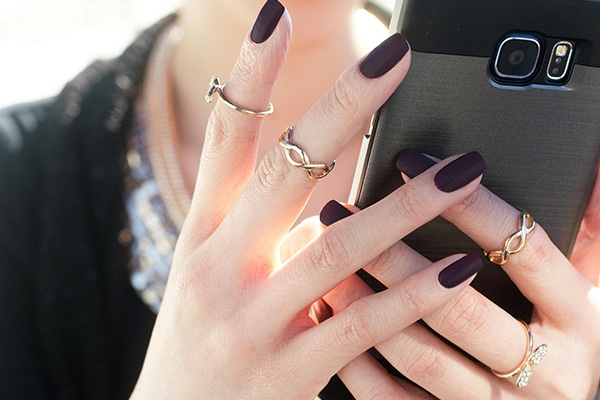Is It Ever Okay to Sideline Someone You’re Dating?
You’re seeing someone. Not exclusively, not seriously, but consistently enough that their name lights up your phone—and your curiosity. You like them. You could—possibly—like them even more. But for some reason, you’re not quite moving forward. But then, you’re not pulling the plug either. Congratulations. You might be benching them.
In today’s dating economy, where attention spans are short and options are infinite, benching has become the emotional equivalent of putting someone on hold— jazz music and all. Not ghosting, not committing. Just… well… parking. It’s tempting. And increasingly common. But is it fair?
Benching vs. Breadcrumbing: What’s the Difference?
They’re both frustrating. They’re both emotionally draining. And they both thrive on ambiguity. But benching and breadcrumbing, while similar in outcome, are fueled by very different motives—and play out in distinctly different emotional rhythms.
Benching happens when someone deliberately keeps you on standby—interested enough to not walk away, but never quite close enough to secure emotional momentum. You get the occasional check-in, maybe a flirty emoji on your Instagram story, or a vague “We should hang soon.” But plans rarely materialize, and intimacy never deepens. It’s not a relationship. It’s a romantic holding pattern.
Breadcrumbing, on the other hand, is more performative and more manipulative. The breadcrumber drops small, deliberate signs of interest—likes, texts, compliments, even long-winded messages—often just as you’re pulling away. The goal? To regain your attention, not to build a connection.
Breadcrumbing is less about indecision and more about ego maintenance. The person wants to be remembered, wanted, maybe even adored—but without offering anything concrete in return. It’s an attention loop, and you’re the dopamine hit.
Where benching often looks like casual disinterest, breadcrumbing mimics emotional intimacy—but only in fragments, never in full. Understanding the difference matters. One is about fear of closing doors (benching). The other is about craving validation with no intention of showing up (breadcrumbing). Both deserve boundaries. Neither deserves your energy.
The Psychology Behind the Pause
Current thinking around attachment theory—Seeking CEO Brandon Wade gives a clear, easy-to-understand breakdown—suggests that emotional ambiguity triggers anxiety in the brain.
Humans are wired for predictability in relationships—it’s part of our evolutionary survival instinct. When we’re benched, our nervous system enters a subtle state of vigilance: checking messages more often, second-guessing silence, analyzing emojis like forensic clues.
Benching is passive. It’s about preserving options without investing effort. You’re not ghosted, but you’re definitely not prioritized. And because it’s not overt rejection, it can feel deceptively polite—even though it chips away at your confidence over time. “It’s not the removal of attention that hurt most,” a friend said, realizing she’d been placed on pause. “It was that it felt so random. So cold.” In other words, benching might feel “gentler” than ghosting, but the emotional whiplash is arguably worse.
Why Do People Bench?
Benching, simply put, is often about fear. Fear of missing out on someone “better.” Fear of confrontation. Fear of being alone. Or, in some cases, fear of hurting someone, even though that’s exactly what’s happening.
It’s also fueled by dating app psychology. Some platforms incentivize endless exploration, not goal-driven results, such as a serious partnership . Your next match is always just a swipe away. And in that environment, it’s easy to let things simmer indefinitely instead of taking them off the heat.
Some benchers justify it as strategic—”I’m just not ready to commit.” But here’s the litmus test: Are you being honest about that? With them, and with yourself?

When Benching Crosses a Line
There’s a difference between pacing and pausing. Between being clear and being vague. Keeping someone benched without transparency isn’t a strategy. It’s emotional hoarding. If someone is showing up for you, texting back, carving out time, and you’re only halfway in? You owe them clarity. Not perfection. Or permanence. But honesty.
Unclear dating dynamics don’t just waste time—they erode trust. And worse, they prevent both parties from pursuing truly aligned connections.
But Wait—Is It Ever Okay?
Not all slow burns are benches. Sometimes, relationships unfold unevenly. Life gets in the way. The difference is communication. If you’re unsure, but still interested, say so. If you need space, explain why. If you’re still casually dating multiple people, own it.
Emotional transparency doesn’t have to mean early commitment—it just means you respect someone enough not to dangle them in ambiguity. In that way, what we call “benching” becomes less about sideline behavior and more about emotional maturity.
The Aha Moment: Benching Isn’t a Power Move—It’s a Detour
The cultural lie is that keeping options open gives us power. But in practice, benching rarely leads to anything meaningful. It keeps us stuck in half-formed dynamics that distract from real alignment. The person you’re benching might be someone else’s perfect match. You might be someone else’s. By dragging it out, no one gets the ending—or beginning—they deserve.
Clarity is kindness. It’s also efficient. The boldest daters are the ones who can say “yes,” “no,” or “not right now” without turning it into a maybe designed to buy time.
How to Know If You’re Being Benched
Some signs are subtle. Others, glaring.
- You never make weekend plans—only last-minute weekday meetups.
- Your texts get answered… eventually.
- Conversations stay surface-level, even after multiple dates.
- They say “let’s hang soon,” but never pick a day.
If it feels like you’re doing the emotional labor of moving the connection forward, it may be time to reassess the match—or ask directly where they stand.

What to Do If You’re the Bencher
Think of this sentence as your permission slip: You don’t have to date everyone who is nice to you. You don’t have to keep things warm just to avoid being “mean.” In fact, you’ll be doing both of you a favor by being clear.
Endings aren’t always easy. But they are clean. And often, the discomfort of honesty is brief compared to the long-term drag of ambiguity. Dating doesn’t need more tactics. It needs more integrity.
FirstDate Final Thought: Build connections, not backups.
Benching isn’t a romantic strategy—it’s avoidance with better lighting. And in a dating landscape that increasingly rewards emotional transparency, it’s starting to look more like a red flag than a grey area.
If you want better dates, give and expect better signals. Honesty is the most attractive quality you can bring to the table. So ditch the bench, step onto the field, and play like you actually want to win.








